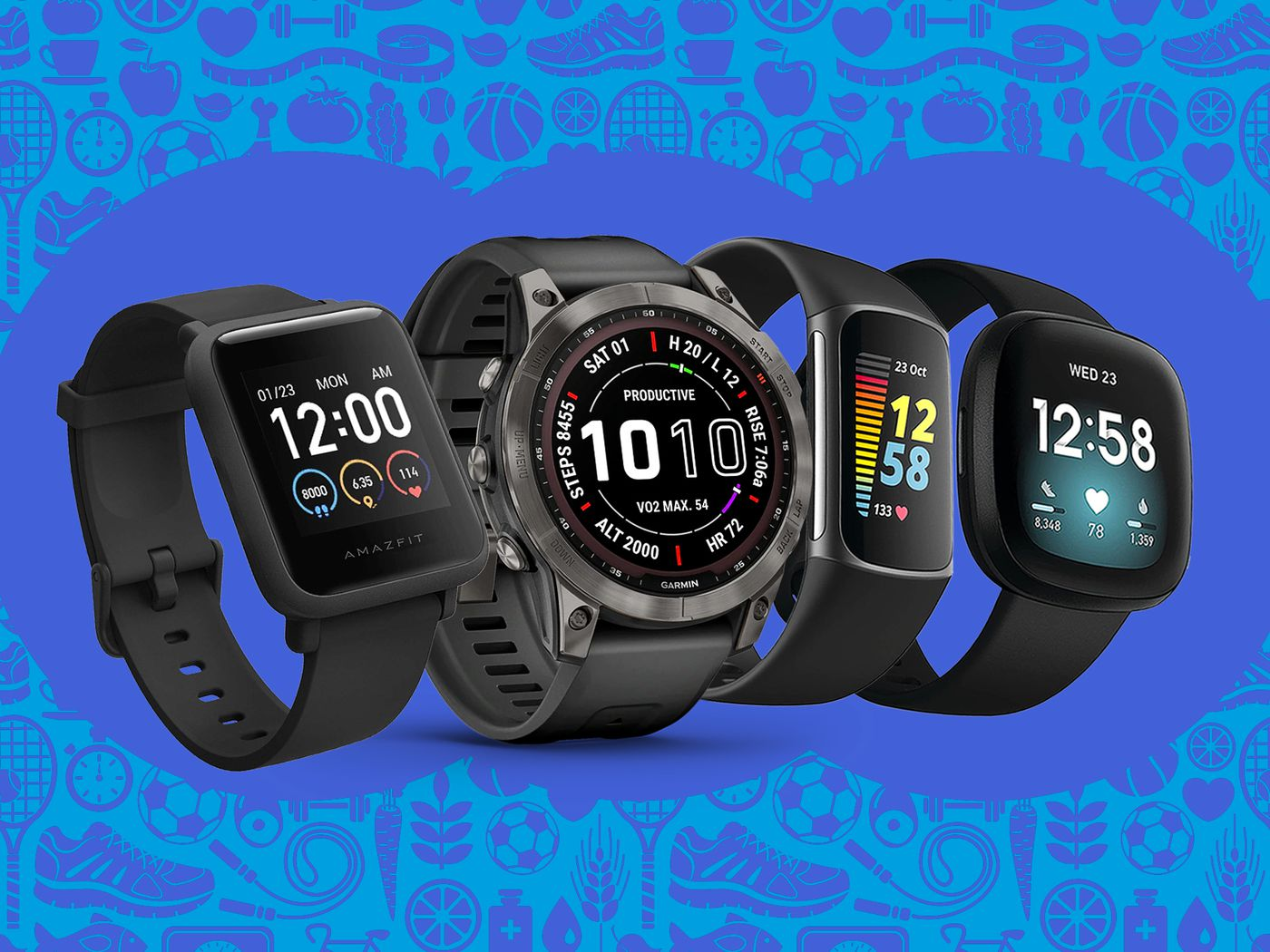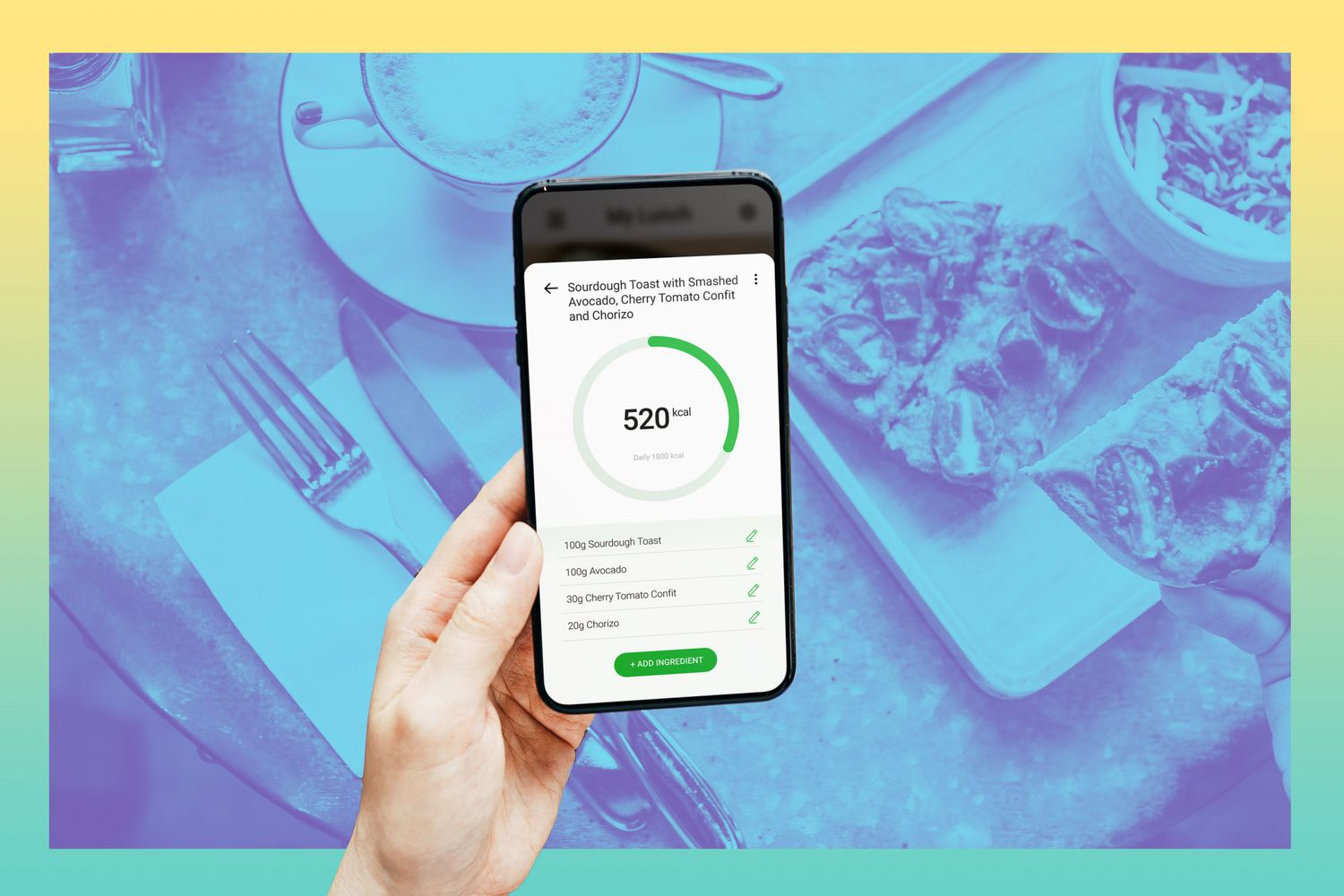Revolutionizing Nutrition Through Technology
In today’s society, managing our diets through technology has become an integral part of achieving a balanced lifestyle. With countless options available, finding the best calorie counting app is essential for individuals who want to closely and effectively track their nutrition. These apps not only help monitor daily calorie intake but also play a crucial role in guiding users towards making healthier food choices, revolutionizing eating habits. The importance of choosing the most suitable app cannot be overstated, as it directly impacts a user’s ability to effectively and sustainably meet their dietary goals.
This article explores top recommendations for the best calorie counting apps, catering to a wide range of needs and dietary preferences. The apps discussed include Noom, known for its psychology-based approach to dieting; Cronometer, offering detailed nutritional tracking; MyPlate, with a simple approach to calorie counting; HappyCow, catering to vegetarians and vegans; and Rise Up + Recover, an app designed for eating disorder recovery. Each app boasts unique features that make the selection process personalized and dependent on a user’s specific requirements. By providing an overview of these diverse options, the article aims to empower readers to find the most effective tool for enhancing their nutritional awareness and fostering healthier eating habits.
Noom: A Psychological Approach to Dieting
Noom is a mobile app designed to help users manage their weight through a psychology-based approach, focusing on long-term behavior changes rather than short-term diets. The program encourages users to understand the psychological triggers behind their eating habits, making it more of a lifestyle choice than just a diet.
Key Features:
- Weekly Challenges and Educational Content: Noom provides users with weekly challenges and educational content covering nutrition, stress management, and healthy habit formation.
- Progress Tracking Tools: Users can record their meals, exercise, and body weight to monitor their progress. Biometric tracking is also available for monitoring blood sugar and blood pressure.
- Virtual Coaching Team: Noom provides guidance through virtual coaching groups and Noom Circles, which are interest-based communities that offer support and keep users on track. Individual coaching is available for an additional fee.
- Color-Coded Food Categorization: Foods are categorized into green, yellow, or orange groups based on their calorie density and nutritional value, helping users make healthier food choices.
Pros and Cons:
Pros:
- Utilizes a simple color-coding system to promote low-calorie density foods.
- Supports behavior change for sustainable weight loss.
- Offers comprehensive support from a virtual team.
- Allows for goal adjustments to suit individual needs and preferences.
Cons:
- Relatively expensive.
- Primarily focuses on weight loss rather than overall health.
- Only offers virtual coaching.
- Requires a smartphone or tablet for use.
Noom has been extensively downloaded and used globally, with many users praising its personalized approach and the integration of psychological principles into the weight management process. However, some users have noted challenges with the food logging feature and the responsiveness of the virtual coach.
Noom offers various subscription packages to suit a user’s desired commitment, from monthly plans to annual subscriptions. Prices start at $70 for a monthly auto-renewal subscription and go up to $209 for the annual plan. Users can also opt for a trial period to experience the service before committing to a full subscription.
Cronometer: Detailed Nutritional Tracking
Cronometer is a comprehensive nutrition tracking app that allows users to monitor up to 84 different nutrients, making it an ideal tool for those following specific diets like Keto or Vegan or for individuals with plans prescribed by a nutritionist. The app seamlessly integrates with numerous fitness trackers, enhancing its utility by incorporating direct exercise data into a user’s nutrition log.
Key Features:
- Comprehensive Nutritional Tracking: Tracks up to 84 nutrients, providing detailed insights into a user’s diet.
- Fitness Tracker Integration: Syncs with compatible fitness trackers to combine exercise data with nutritional data for a comprehensive health view.
- Compatibility with Diverse Diets: Supports various diets, from Keto to Vegan, catering to a range of nutritional needs and preferences.
- Dual Access Capabilities: Available in both a free version for basic tracking and a Gold version for advanced features and customization.
Pros and Cons:
Pros:
- Extensive Nutrient Tracking: Allows detailed monitoring of a wide variety of nutrients, aiding in precise diet management.
- Community Support: Access to a support community through forums and social media, providing a platform for interaction and support.
- Customizable Tracking: Offers extensive customization options in the Gold version, including fasting tracking and detailed reports.
Cons:
- Advertisements in the Free Version: The free version includes ads which can be disruptive.
- Complexity: The detailed tracking features can be overwhelming for beginners or those who prefer a simpler approach.
Cronometer generally receives positive feedback for its detailed tracking capabilities and user-friendliness. Users appreciate the app’s ability to provide comprehensive nutritional data and its integration with fitness devices. However, some users find the plethora of tracking options to be excessive, especially for those new to diet tracking.
Cronometer offers a tiered pricing structure. The free version provides basic tracking functions, while the Gold version, priced at $8.99 per month or $49.99 per year, unlocks advanced features such as ad-free usage, fasting tracking, and customizable reports. This makes Cronometer accessible at various price points depending on a user’s needs and preferences.
MyPlate: Simplifying Balanced Diets
MyPlate, developed by the U.S. Department of Agriculture, is a comprehensive app designed to support users in achieving a balanced diet by focusing on incorporating all five food groups into their daily meals. The app encourages users to meet healthy eating goals one step at a time, providing a simple approach to nutrition aligned with the Dietary Guidelines for Americans, 2020-2025.
Key Features:
- Goal Dashboard: Users can set and track daily goals for each food group, promoting balanced consumption of fruits, vegetables, grains, protein-rich foods, and dairy.
- MyPlate 101: Offers educational content about food groups, including health benefits, serving sizes, and estimated portions based on demographic factors.
- Badges and Challenges: Awards badges for goal achievements and provides challenges to keep users motivated.
- MyPlate Quiz: An interactive tool that assesses eating habits and provides personalized nutrition resources.
- Device Integration: Syncs with smartwatches and mobile devices for seamless tracking.
Pros and Cons:
Pros:
- Encourages a balanced diet through simple daily food goals.
- Provides educational resources for a better understanding of nutrition.
- Motivates users through badges and challenges.
- Personalizes goals using the MyPlate Quiz.
Cons:
- Limited tracking of specific meals/foods.
- May not cater to specific health conditions or diets.
Users perceive MyPlate as an effective tool for making positive changes towards a healthier diet. They appreciate the app’s ease of use, integration with wearable devices, and the abundance of educational content provided. However, some users express a desire for more detailed meal and food tracking capabilities to better suit specific dietary needs.
MyPlate is available as a free app, offering core features at no cost. For users seeking advanced functionalities, such as detailed personalized nutritional data and additional workout routines, MyPlate offers a “Go Gold” subscription plan with three price tiers: 1 month for $9.99, 6 months for $29.99, and 1 year for $44.99. This tiered pricing structure enables users to choose a level of commitment that aligns with their preferences and budgets.
HappyCow: Vegan and Vegetarian Dining Made Easy
HappyCow, founded in 1999, serves as the ultimate guide for discovering delicious vegan dining options worldwide. With over 240,000 listings across 185 countries, the app simplifies vegan and vegetarian culinary exploration, making it an essential tool for both travelers and local residents.
Key Features:
- Powerful Search and Filters: Users can easily find nearby restaurants or plan their meals while traveling, with filtering options for vegan, vegetarian, gluten-free, and more.
- Interactive Map: The app features community-managed maps that help users discover both renowned and hidden gems, with the ability to save favorites for offline access.
- Extensive Database: HappyCow boasts an extensive database with access to over 1,475,000 reviews and 2,000,000 photos, updated daily by a dedicated team and a vibrant community.
- Community Engagement: It fosters the largest vegan community in the world, allowing users to follow Feeds, connect with like-minded individuals, leave reviews, and share photos.
- Multilingual Support: The app is available in 12 languages, catering to a global audience.
Pros and Cons:
Pros:
- Wide global coverage with user-generated content.
- Detailed reviews, photos, hours, and directions facilitate informed decision-making.
- Promotes compassionate living through community engagement.
Cons:
- Cost can be a barrier for some users.
Users have hailed HappyCow as an indispensable tool, especially in less vegan-friendly parts of the world, leading them to incredible vegan experiences. It is praised for its usefulness in meal planning and finding vegan food on the go, empowering users to cultivate a vegan lifestyle regardless of their location. The app’s ability to find vegan grocery stores alongside restaurants has been highlighted as particularly valuable.
HappyCow is a paid app, priced at $3.99 (or S$5.98), making it the top-ranked paid app in the travel category of the App Store in Singapore. However, it offers free promo codes for ‘Crystal’ level members, incentivizing community participation and contributions.
Rise Up + Recover: Supporting Eating Disorder Recovery
Rise Up + Recover is an app specifically designed to support individuals struggling with eating disorders by providing tools to track meals and emotions. The app is particularly beneficial for individuals seeking to re-establish regular eating patterns during recovery from disorders like Anorexia Nervosa, Bulimia Nervosa, and EDNOS (Eating Disorder Not Otherwise Specified).
Key Features:
- Mood and Meal Diary: Users can perform daily “check-ins” to record their moods from a customizable list and log meal details, including time, food consumed, and location.
- Exportable PDF Reports: Meal and mood diaries can be exported as PDFs, allowing users to share their progress with healthcare providers, enhancing the treatment and recovery process.
- Inspirational Messages and Recovery Tips: After logging meals, users receive motivational messages and tips on various aspects of recovery, such as body image and mindfulness.
Pros and Cons:
Pros:
- Comprehensive tracking support for meals and emotions.
- Facilitates easy data sharing with clinicians.
- Provides motivational support through messages and tips.
Cons:
- Not a replacement for professional treatment; should be used alongside professional care.
- App focuses primarily on North American users; limited support functions for other regions.
Users have praised Rise Up + Recover for its ease of use and ability to empower individuals by allowing them to track their recovery journey. The app’s features, such as the ability to log meals and emotions, have been highlighted as particularly helpful. Therapists also recommend it for its usefulness in facilitating discussions during therapy sessions.
Rise Up + Recover is available for free, granting users widespread access to its features without financial burdens. This accessibility is crucial for users who need ongoing support throughout their recovery journey.
Conclusion: Embracing Technology for Healthier Living
Through exploring these calorie counting apps, we’ve delved into a diverse range of options tailored to meet various dietary needs and preferences. From Noom’s psychological approach to dieting and Cronometer’s detailed nutritional tracking to MyPlate’s focus on adhering to balanced diets, HappyCow’s guidance on vegetarian and vegan living, and Rise Up + Recover’s support for those recovering from eating disorders, the scope of support these apps provide is vast. Each app offers distinct standout features, making the selection process deeply personalized and dependent on an individual’s specific goals and requirements. This highlights the importance of choosing an app that not only aligns with one’s dietary goals but also seamlessly integrates into their daily routines for sustained use and benefit.
The impact of incorporating a suitable calorie counting app into one’s lifestyle is significant, capable of revolutionizing eating habits and contributing to a healthier, more balanced lifestyle. The convenience of tracking nutrition, setting goals, and receiving personalized advice at one’s fingertips underscores a broader movement towards leveraging technology for health. While this article has presented exemplary apps, the journey towards optimal health is ongoing, warranting continued research and exploration into emerging tools and technologies. As we strive for a healthier tomorrow, the role of digital innovation, as exemplified by these calorie counting apps, is sure to play a vital role in shaping our nutritional choices and promoting a culture of wellness.
Frequently Asked Questions
- What are the top calorie counting apps available?
The best calorie counting apps depend on various needs, such as: - Best Overall: MyFitnessPal
- Best for Free Features: Lose It!
- Best Completely Free: FatSecret
- Best for Specific Diets: Cronometer
- Best for Weight Loss: Noom
- Best for Building Healthy Habits: Lifesum
- Best for Diet Quality: MyNetDiary
- Best for Simplicity: Calory
- Can calorie counting apps provide accurate calorie counts?
While calorie counting apps can provide estimations of calories burned during exercise, it’s essential to remember that these figures are estimates. Their accuracy can be affected by various factors and may not always be 100% precise. - Are there better apps than MyFitnessPal for food tracking?
Yes, several apps serve as great alternatives to MyFitnessPal for both Android and iOS users, including: - Lifesum
- Lose It!
- Calorie Counter by FatSecret
- Cronometer
- Open Food Facts
- Calorie Counter +
- MyNetDiary
- YAZIO Fasting & Food Tracker
- How can I make calorie tracking a habit?
To successfully incorporate calorie tracking into your routine, consider these tips: - Start by recording your actual eating habits.
- Use a calorie tracking app.
- Find and understand your eating patterns.
- Determine your baseline intake and then make necessary adjustments.
- Focus on building your diet around a few staple meals.
- Learn how to use pre-portioned foods that work for you.
- Pre-load your main meals into your tracking app.
- Remember to consider nutritional value, not just calorie counts.
For more insights on how technology is transforming health, check out How Automated Medicine Dispensers Integrate With Smart Home Systems: Unlocking Convenience, Level Up Your Home Gym: Best Smart Home Gym Equipment Reviews of 2025, and How Future Healthcare Technology is Elevating At-Home Care.




